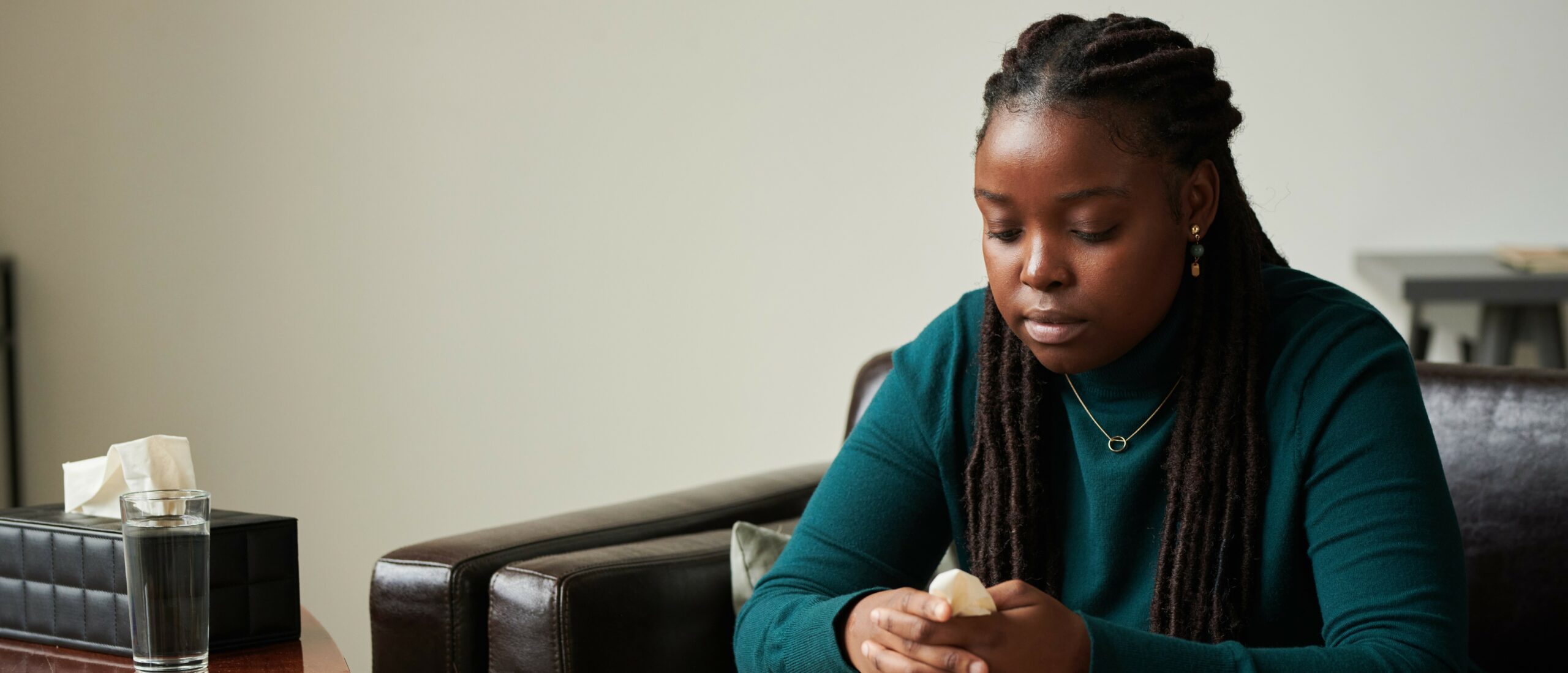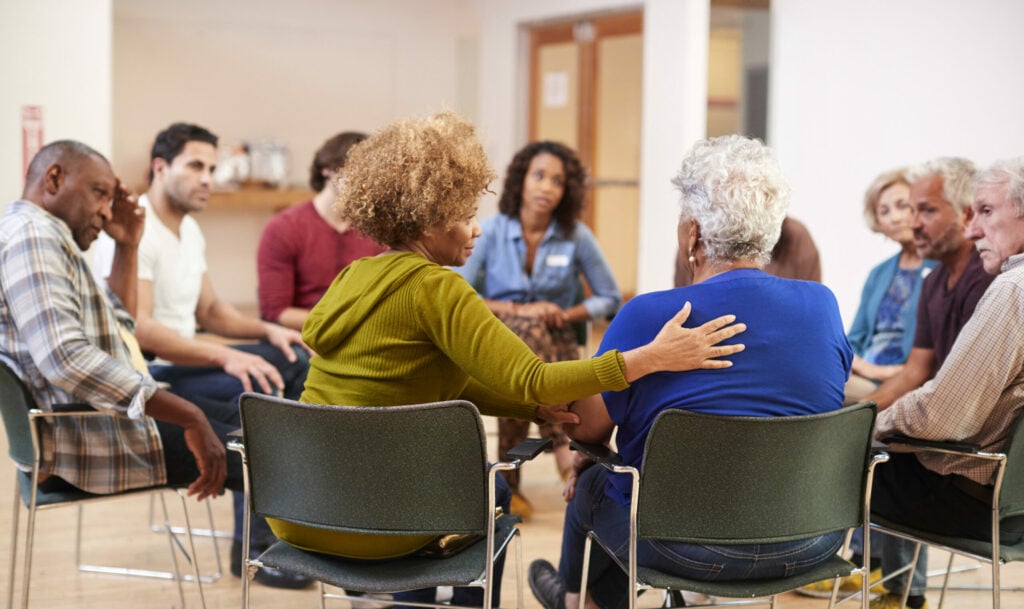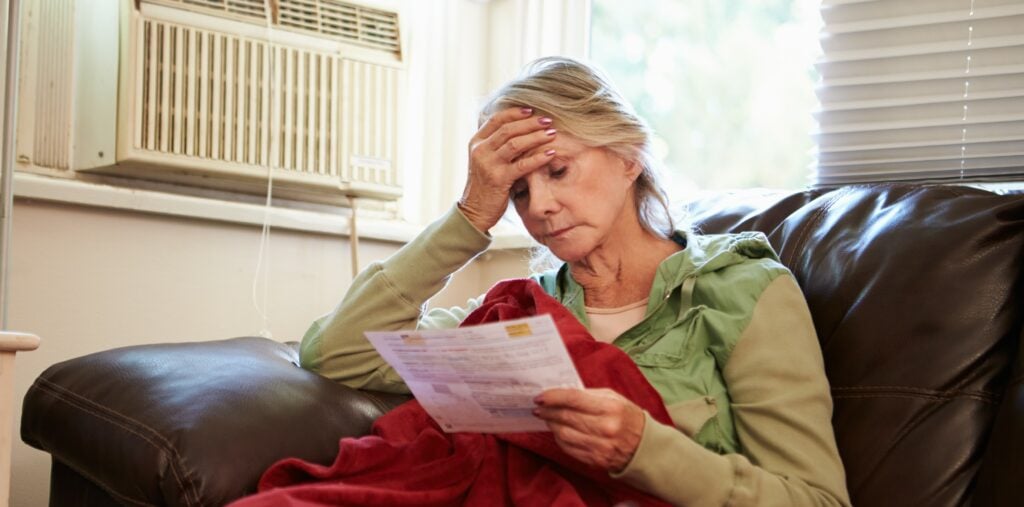Easing access to therapy for Black women and girls
Reviewed by Monika Cope-Ward, LCSW


Over the past decade, America has experienced a profound shift in how we think about mental health care. What used to be stigmatized has become mainstream in many communities, and going to therapy is often seen more as a sign of maturity than a badge of shame.


But just as our national health care system fails so many when it comes to access, so does our mental health care system. Members of historically marginalized groups, especially people of color, are much less likely to receive mental health services.1 In response to this systemic failure, a number of nonprofit organizations have emerged to help people get the care they need.
The mission of the Loveland Foundation is to provide access to therapy and healing for communities of color, especially Black women and girls. “I think for Black women in general, society has a lot of hurdles for us,” says Sharlene Kemler, the foundation’s CEO. “But if we can create a soft landing spot for folks, that’s where the generational healing journey begins.”
The success of Loveland—and why its model of support resonates so well with the people it serves—lies in the simplicity of its process. By removing typical bureaucratic and financial hurdles for participants, the foundation is setting a new standard for ease of access to mental health care.
It began as a birthday wish
In 2018, Loveland founder Rachel Cargle held a Facebook birthday fundraiser to help Black women and girls receive therapy.2 When it unexpectedly brought in more than $250,000, Cargle wanted to build on the momentum. She looked to Kemler, who’s also the CEO and founder of SK Philanthropy, for help with creating a sustainable source of long-term funding. The Loveland Foundation was born soon after.
Kemler was drawn to the project personally as well as professionally. “I felt this was important as someone who has benefited from therapy myself, and seeing how amazing it has been,” she says.
Common barriers to access
Generational trauma refers to traumatic impact passed down through families, and it can have serious consequences for mental health. For many Black Americans, mistrust of the medical system can be traced directly to trauma from the system’s long history of racism and oppression.3
The centering of religion in community life plays a role in stigmas around mental health care too, as people may be more likely to look for guidance from a spiritual leader than a clinician. Hesitation to seek professional treatment may also stem from the fact that only 5% of active psychologists are Black, so it can be difficult for Black clients to find therapists they feel they can trust.4
Kemler, who grew up in a West Indian family where talking about feelings was taboo, experienced these challenges firsthand. When she decided to try therapy as a young woman, “I would walk to the door, turn around, and walk away. Then do it again—many times,” she says. “But when my mother died of pancreatic cancer, I knew I needed more support.”
Funding sessions for clients
Each year, the Loveland Foundation’s therapy fund provides financial assistance to more than 5,000 Black women and girls who are seeking counseling. “Mental wellness is still considered a luxury item,” says Kemler. “No one should have to choose between one week’s worth of groceries for their family versus one hour of therapy for themselves.”
There are few to no restrictions on the assistance, which Kemler says helps remove barriers. “We don’t even ask for your income,” she says. Participants are given therapy vouchers that can go to any clinician who accepts them. If a participant wants to work with a therapist who doesn’t accept Loveland’s vouchers, the foundation provides payment in other ways.
This flexibility appeals to Loveland’s program participants. “At the end of each cohort, we ask people to fill out a small survey, and the number one thing folks tell us is ‘Thank you for making it easy for me,’” says Kemler.
Deciding to go to therapy is a difficult first step for many. Loveland’s goal is to make the second step—finding and connecting with a therapist—as simple as possible.
Support for clinicians
Clients aren’t the only focus at Loveland. “Clinicians are the DNA of our entire foundation,” says Kemler, and they need support too. Participating providers are offered access to resources including classes, workshops, and group therapy sessions.
In recognition of the shortage of clinicians of color, Loveland also offers professional training in cultural sensitivity, microaggressions, and other key topics for therapists who see clients of color.5 “It’s important to work with clinicians who are allies, because you don’t know what you don’t know,” Kemler says.
Helping more therapists earn their stripes
The Loveland Foundation wants to help address the shortage of clinicians of color directly as well. Through research, they’ve identified a key way they may be able to make a difference: “What it comes down to is clinical hours,” Kemler says.
The licensure process requires therapists in training to complete a set number of clinical hours after their coursework is done. This number varies by state, but the hours are almost universally unpaid.6
“The top two reasons folks were able to complete their clinical hours was either they had a spouse who made enough money to financially support them, or they moved home to their parents,” Kemler says. For people from marginalized communities, those options often aren’t available.
That’s why the Loveland Foundation is studying state requirements and working toward legislation that would help fund therapists’ clinical hours. “If students were paid $45,000 a year to do this work, they could complete it and be in the workforce within a year and a half instead of three to four years,” Kemler explains.
Changing laws takes time, but Kemler points to some states that are already doing it right. “New Hampshire, for example, requires that clinical supervision hours be paid,” she says.7 “How do we get every state to look like New Hampshire?”
Working together for access
Making real change will require many organizations like hers to join forces, Kemler says: “I love bringing in partners who can help us make tangible change in access.” In one recent example, Loveland partnered with the Renfrew Center for a training on eating disorders in underserved populations.
“If we all work together,” Kemler says, “maybe we can finally move the needle on access to mental health care for those who need it most.”
To find a licensed therapist near you, search our directory today. Under “Refine your search,” select “Therapist identity” to filter by race, ethnicity, or gender, among other options.
To learn more about the Loveland Foundation and how to support their therapy fund, visit their website.

Sources
1 https://www.nami.org/Advocacy/Policy-Priorities/Supporting-Community-Inclusion-and-Non-Discrimination/Mental-Health-Inequities-Racism-and-Racial-Discrimination/
2 https://time.com/6278752/rachel-cargle-a-renaissance-of-our-own/
3 https://www.ncbi.nlm.nih.gov/pmc/articles/PMC8496896/
4 https://www.apa.org/workforce/data-tools/demographics/
5 https://www.apa.org/workforce/data-tools/demographics/
6 https://onlinecounselingprograms.com/become-a-counselor/counseling-licensure/
7 https://www.nhes.nh.gov/elmi/products/licertocc/documents/mentalhc.pdf
About the author
Amye Archer, MFA, is the author of “Fat Girl, Skinny” and the coeditor of “If I Don’t Make It, I Love You: Survivors in the Aftermath of School Shootings,” and her work has appeared in Creative Nonfiction magazine, Longreads, Brevity, and more. Her podcast, “Gen X, This Is Why,” reexamines media from the ’70s and ’80s. She holds a Master of Fine Arts in creative nonfiction and lives with her husband, twin daughters, and various pets in Pennsylvania.
Related articles

Could your next therapist be a chatbot?
Chatbot apps offer free, accessible mental health support—but they may cause...

How to find free or affordable therapy
Therapy can be pricey, especially if you don’t have insurance. Try these free...

What you earn, your education, and your job can all affect your mental health...
